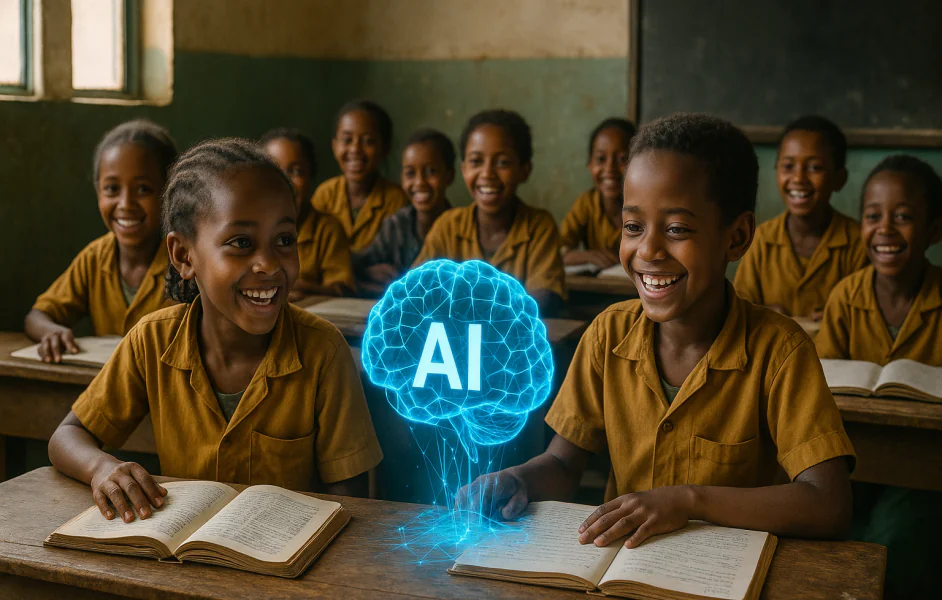Unite
1M
394

Image Credit: Unite
Bridging Educational Gaps in the Developing World through Beneficial AGI: Lessons from Ethiopia
- The article discusses leveraging Artificial General Intelligence (AGI) to bridge educational gaps in the developing world, focusing on experiences from Ethiopia's iCog Labs.
- Challenges in the educational domain in developing countries include linguistic barriers and culturally irrelevant educational content, which can be overcome using AI technologies.
- AI-driven translation tools can address language barriers, enabling access to education in local languages for underserved populations.
- Initiatives like Leyu, a data crowdsourcing platform collecting linguistic resources from disconnected communities, aim to train AI models for translating languages.
- Customizing educational content through AI to align with local realities enhances relevance and practical application, fostering engagement and self-reliance.
- Projects like Digitruck bring AI concepts to rural areas through hands-on experiences, showcasing AI's potential to empower communities practically.
- AI technology is perceived as a trusted ally by communities with limited internet access, offering practical benefits like farming advice and market insights.
- Collaborative learning and social cohesion are crucial in developing world contexts, where AI integration should complement existing community structures.
- Ethical implementation of AI in education requires human-AI alignment, strengthening traditional learning foundations and emphasizing personalized learning over rote memorization.
- The article advocates for decentralized and democratic AI development to address global education equity and diverse needs, promoting platforms like SingularityNET.
- By navigating risks, fostering alignment, and promoting participatory governance, AI can play a transformative role in achieving educational equality and uplifting communities worldwide.
Read Full Article
23 Likes
For uninterrupted reading, download the app